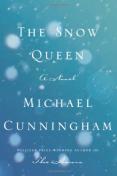
by Michael Cunningham
Hardcover- $21.01
A darkly luminous new novel from the Pulitzer Prize–winning author of The Hours
Michael Cunningham’s luminous novel begins with a ...
Overall rating:
How would you rate this book?
Member ratings
Hans Christian Andersen’s fable, “Snow Queen”, is the source of the title. Andersen’s fable is about the struggle between good and evil. In Michael Cunningham’s book, there seems to be a struggle between reality and unreality. In the fable, the broken pieces of a looking glass brought out the worst in people, perhaps the title indicates that the characters in Cunningham’s novel are all broken people, unable to deal with life in a healthy way.
Not one of the characters was a fully functional human being, following any rules of decorum. The use of drugs was addressed as harmful, but not really emphasized as a wrong choice. The unusual alliances of couples that simply seemed to toy with each other, was demoralizing in many ways. Not one character seemed to have a redeeming feature. They all seemed to be miserably unhappy and unfulfilled people, living on the edge of “Normal”. Perhaps I am feeling overly critical because I feel as if I was personally attacked by the political philosophy of the characters, obviously reflecting those views of the author or he could just as easily have written ill about Al Gore, Bill Clinton and Barack Obama. I am not taking sides, merely indicating that there was plenty of reason to use the Democrats as examples, as well as the Republicans. If he had been more even handed, perhaps he would not have turned me off. If I wanted to read a biased political diatribe against the GOP, I would read George Soros’ Socialist leaning Media Matters or watch the Cable arm of the Liberals, MSNBC! The author has lots of company in this effort to brainwash the reading public, since many authors, today, use their bully pulpit to present their own personal dogma, their own personal prejudiced ideology, without regard to the sensitivity of those readers who might disagree with them. Sometimes I feel that only the cover and title changes from book to book, and I am simply reading the same prejudiced message again and again. While the authors present me with the ideas they prefer, they are obviously unwilling to consider those ideas that I might prefer. If shown the light of day and presented fairly, those ideas might alter their own limited, one-sided opinions and help bring us all together.
I rarely give up on a book, once I start it, but this one almost forced me over the edge. It wasn’t just that the story was a Liberal handbook; it was that it was a diatribe against Conservatives and/or Republicans. When the book attacked George W. Bush, I thought, okay, maybe the author is establishing a timeline for his narrative. When his narrative became vitriolic, including Sarah Palin and John McCain, I bristled. I do not want to be force fed an author’s political views. Perhaps Mr. Cunningham did not intend to insult his readers who were not on the same political spectrum as he, but then he sure fooled me. Because I am a fiscal Conservative, but a social Liberal, undaunted, I continued to read the book. However, the politics ruined the experience. There didn’t seem to be any reason to include such nastiness against a political party unless the author’s message was that Liberals and Progressives are good and Republicans and Conservatives are evil, and they are, therefore, engaged in the fable’s struggle between good and evil. However, if that was the case, it should have been included in a review so that I, as an innocent bystander, thinking the book would be as good as “The Hours”, could have been forewarned.
In addition, Clare Danes is the reader of the audio, and although her enunciation is fine and she reads with some feeling, she seems to be outside of the book, not of it. She never fully forms the characters or identifies them singularly. In good audios, the reader almost becomes another character in the book. Not so, with this one. She seemed almost tired and hoarse as she read. The book needed someone who could get into the characters voice and personality, making each one individual and real, rather than making them all seem lumped together. Since most of the characters were male, I think a male reader might have been better.
The author interview at the end helped to soften my opinion of the book. I had not known that the author, Michael Cunningham, was gay. I was unsure of why the sexuality of the characters played such a prominent part in the narrative, but after the interview, I understood. I also could commiserate with his being grateful for having survived the aids epidemic, since I experienced the loss of many I admired before the cocktail was discovered. The interview brought me to a closer understanding of the author, but not to the story. I simply am not certain what point he was trying to make, other than a political treatise in the guise of a novel.
Perhaps the virtues of these conflicting views were meant to be considered between the pages of this book: sickness/health, liberal/conservative, success/failure, life/death, happy/sad, hate/love, gay/straight, hope/hopelessness. Unfortunately, the reader who was offended by the unnecessary, angry political views presented may not take the time to concentrate on the good vs. bad behavior and the right vs. wrong choices.
Book Club HQ to over 90,000+ book clubs and ready to welcome yours.
Get free weekly updates on top club picks, book giveaways, author events and more








